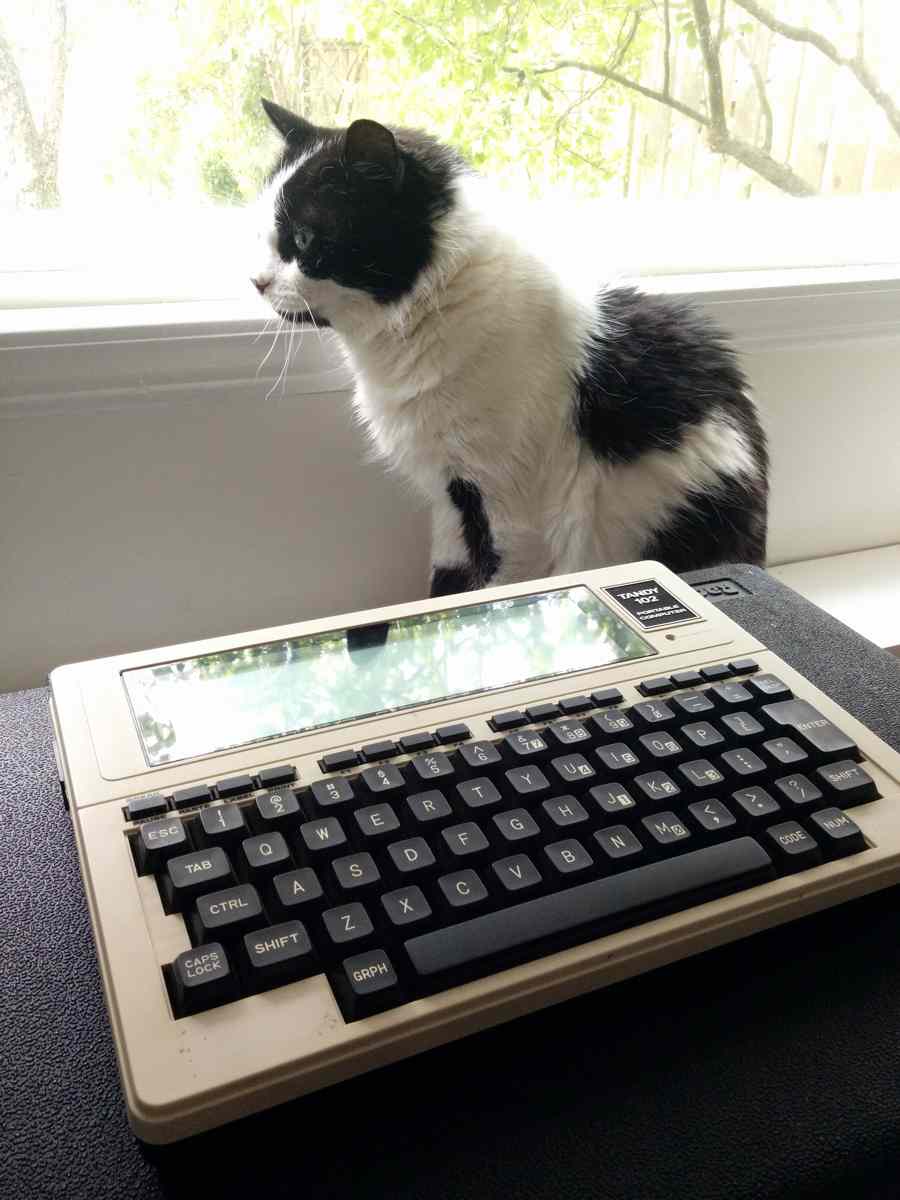Listening To: Destructos – Blast
Photo: A Tandy 102 portable computer (and Willy). Used by field reporters for many years as it ran up to twenty hours on common batteries and included a modem to file reports with. Still works!
The various Privacy Watchdogs of Canada just filed a report finding that Clearview AI’s facial recognition software use in Canada was not legal. It seemed obvious from the outset (scraping copyrighted images and using them without consent) but various corporate and government entities resisted and even denied using the technology until leaked documents exposed them.
is the source but you can find both interviews and summaries from various media outlets. (TYEE) (CBC)
How to protect against this? The best thing an individual can do is familiarise themselves with the present privacy laws (Federal, Provincial (BC), Document Act) and have a good think before giving away any personal information. Especially to government and businesses who have proven not only to disrespect it, but often seem unwilling or unable to protect it. I worked with a woman who, several years after the Sony Hack, was still feeling the effects of identity theft.
If you are refused a job, good or service because of your application of the privacy laws, there is a formal grievance process through the office of your local Privacy Commissioner. It can be considered a form of actionable discrimination. There is often a thirty day cool-down period for the parties to negotiate before the formal application can be made, but I found submitting the complaint documentation directly to the head office of the company you are dealing with makes for swift action.
Seems nobody wants a government privacy audit of their practices.
Funny that.
